Let’s maintain one of the things that makes Chicago Public Schools special: local decision-making.
We must protect each principal’s right to lead their school in a way that meets students’ needs by making their own budget and staffing decisions.
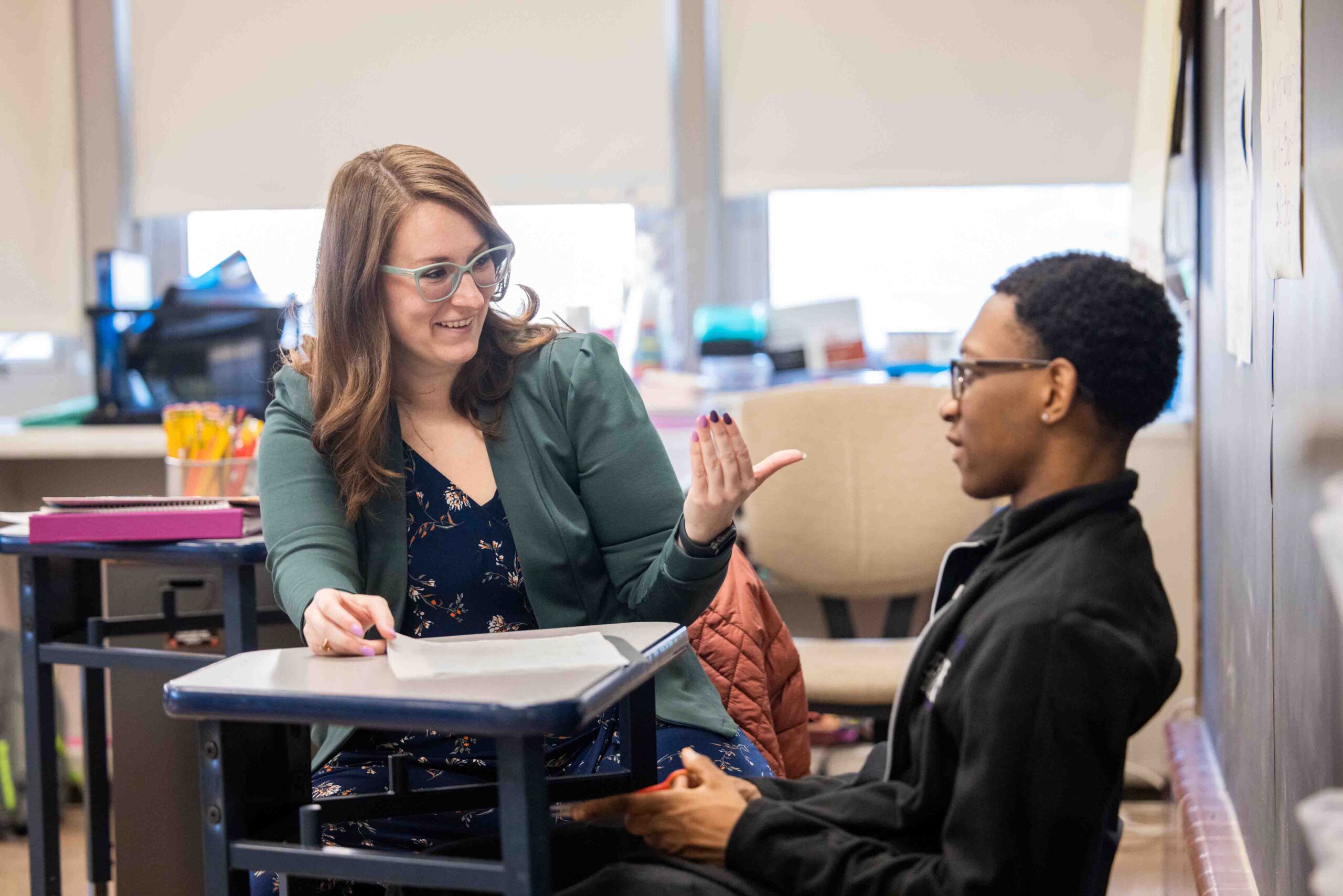
In Their Own Words
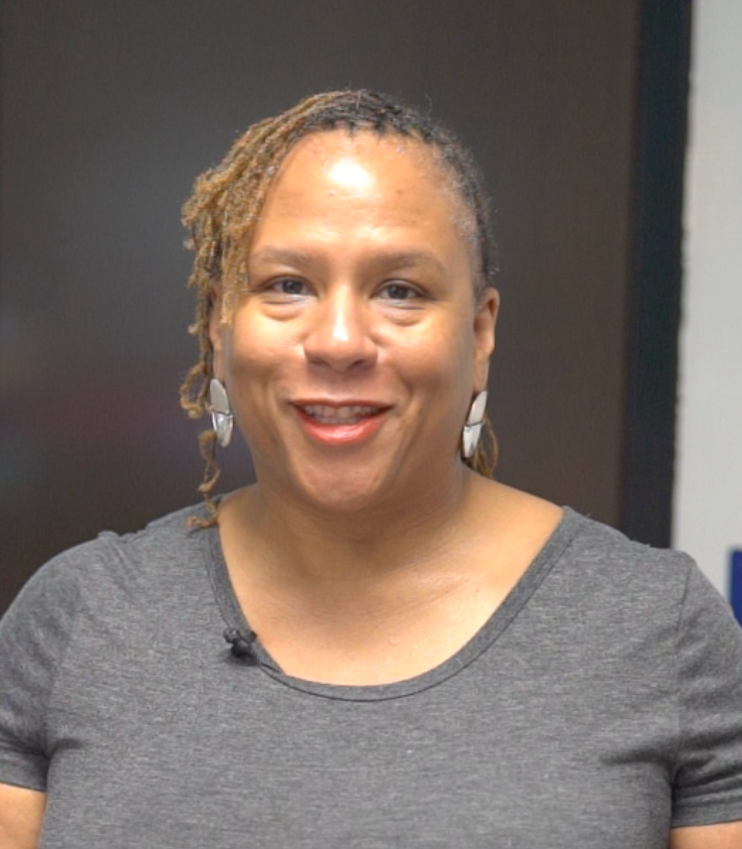
Dr. Althea Hammond
Principal, Plamondon
Elementary School
“The way we [as principals in Chicago Public Schools] are allowed to lead is what sets us apart from leadership in any other system.”
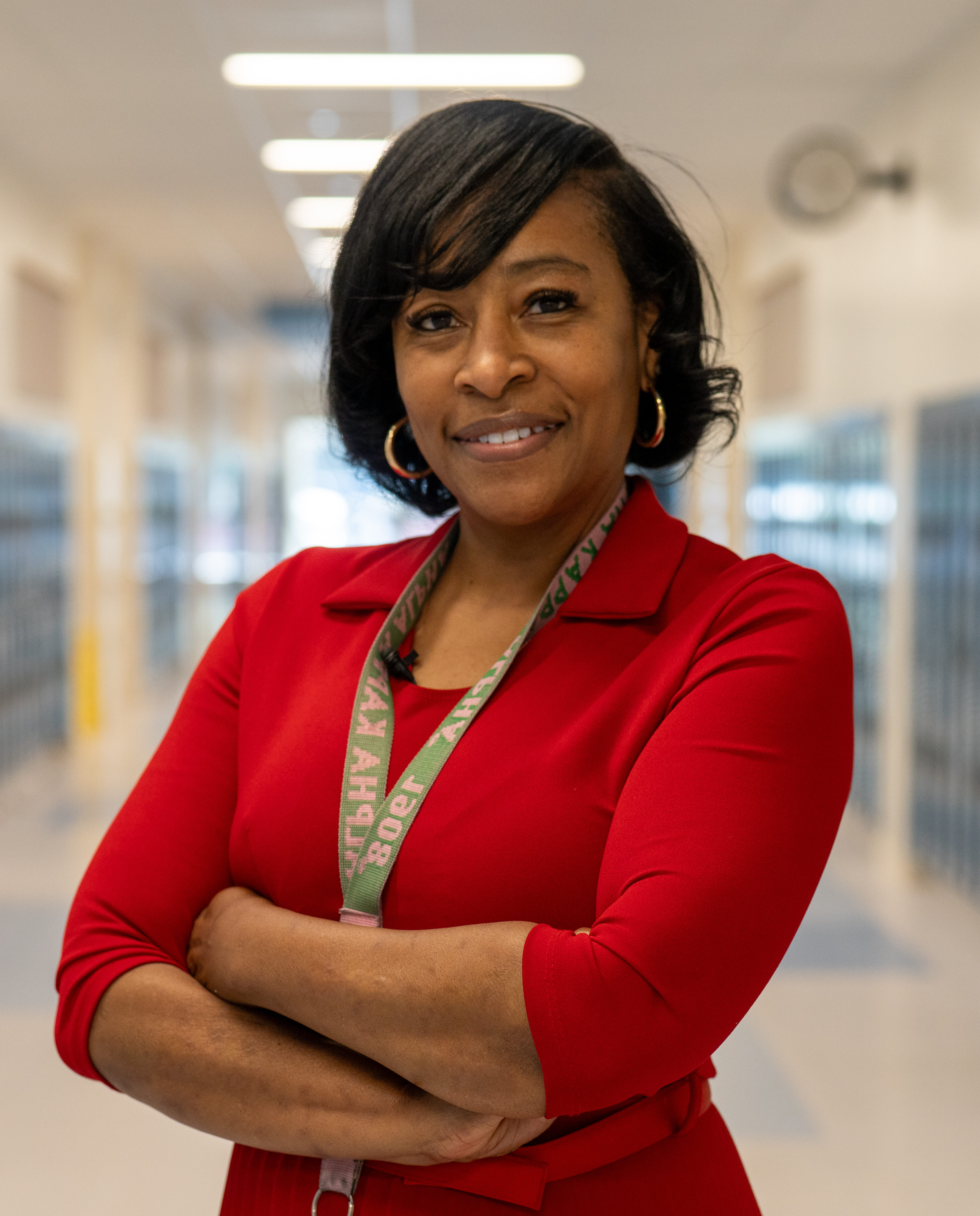
Tara Shelton
Principal, South Loop
Elementary School
“We are very fortunate to work for Chicago Public Schools. There is a lot of autonomy around decision-making.”
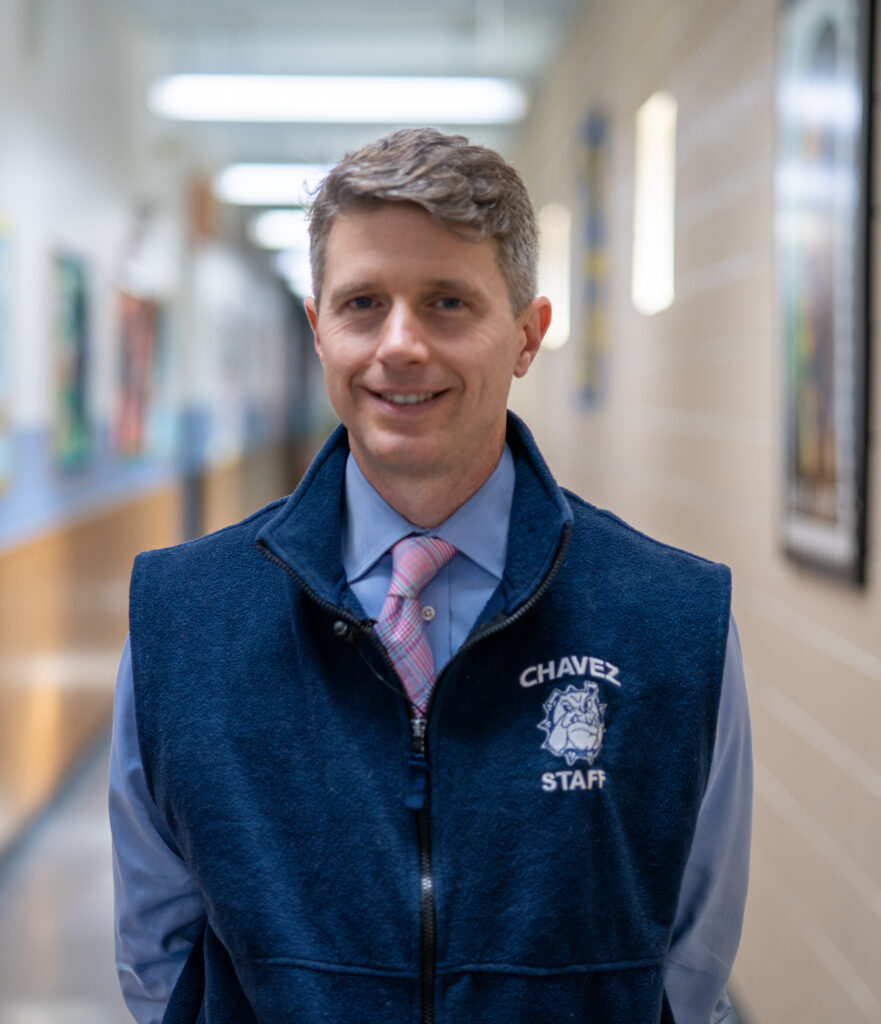
Barton Dassinger
Principal, Cesar Chávez Elementary School
“I don’t think I could be a principal in a district other than CPS, and that’s because of the autonomy and trust given to school leaders.”

Patricia Mota
LSC Member, Irma Ruiz Elementary School
“In Chicago, we should be proud that our schools are governed locally, by principals and community members who know our families and students best.”
Two-thirds of Chicagoans
support keeping school
decision-making local.

Stay in the Know
If you agree that the people making decisions about our schools should be the people who teach, learn, and live around them, stay connected with us by filling out the form below.
"*" indicates required fields
Chicago’s public schools must continue to be led
by experienced principals who are embedded in the community and by Local School Councils who are accountable to children
and families.
They shouldn’t be led through a
top-down, centralized,
one-size-fits-all approach.
Case Study: Chávez Elementary
- For more than a decade, Chávez Elementary Principal Barton Dassinger was able to fund an extended-day instructional program that leveraged an additional 60 minutes, four days per week.
- Mr. Dassinger credits the program with Chávez’s success: Chávez’s students, who are 95% Latino/a/x and 98% low-income, now outperform 90% of ALL students across the country in math, and have done so for four years. To sustain that level of growth and to continue to raise expectations, Chávez continued its extended day even after the longer school day was introduced citywide.
- The program was fully staffed with Chávez teachers, who are paid the full collectively bargained, extended-day rate.
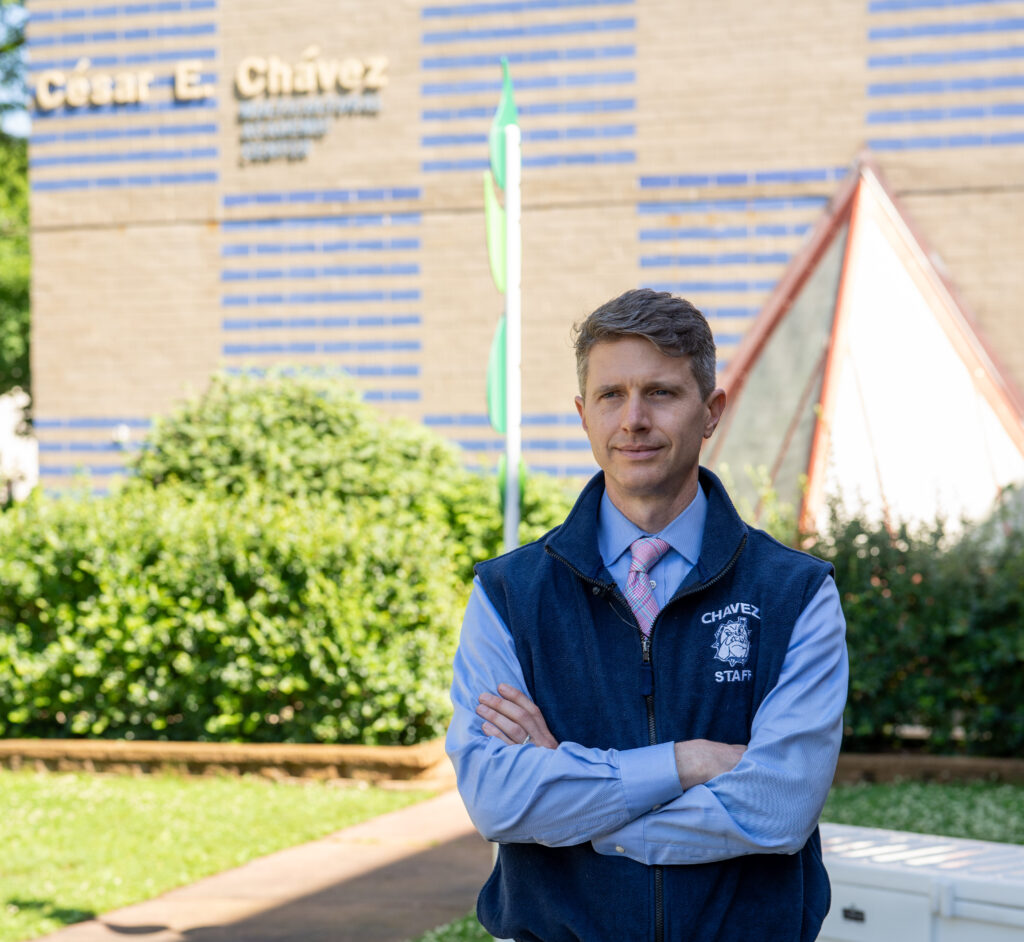
Local decision-making represents trust that neighborhoods and communities know best what they need for themselves, rather than dictating those needs centrally and overriding community voices.
What does local decision-making look like in practice?
Following the Chicago School Reform Act of 1988, CPS principals gained autonomies protected under state law, including the ability to:
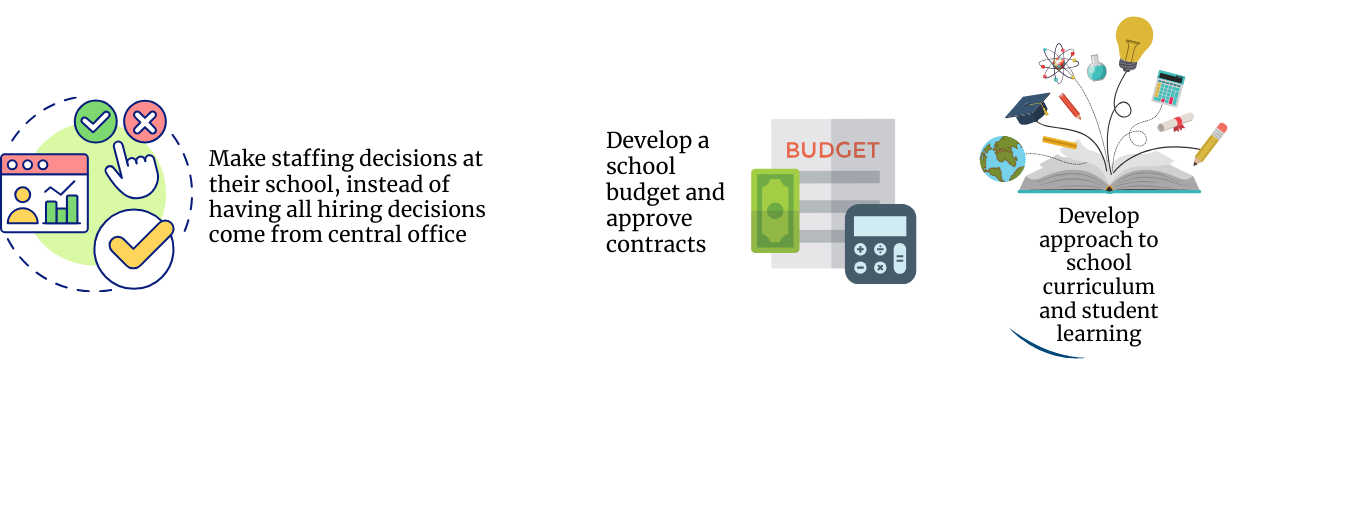
Principals are aided in these duties
by Local School Councils (LSCs), composed
of parents, community members, students, teachers, and other school staff.
Their duties include:
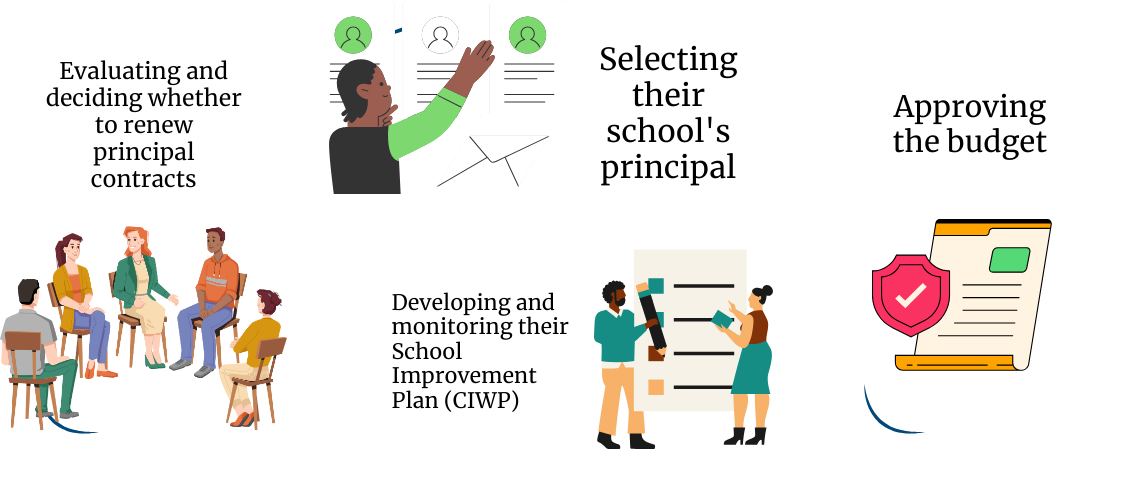
How does the new budget system impact local decision-making?
As part of the 2024-25 budget, CPS moved away Student Based Budgeting (SBB) to a model based on need. The shift away from the student-based budgeting model has retained many key aspects of local decision-making:
- The budget maintains the overall level of funding, ideally allowing individual schools security in continuing their programs.
- Principals retain the ability to make staffing decisions that fit the needs of their local schools.
- The new formula aims to further goals of equity by distributing resources to schools furthest from opportunity.
- The budget recognizes the importance of school leadership by ensuring all schools have the ability to have an assistant principal position.
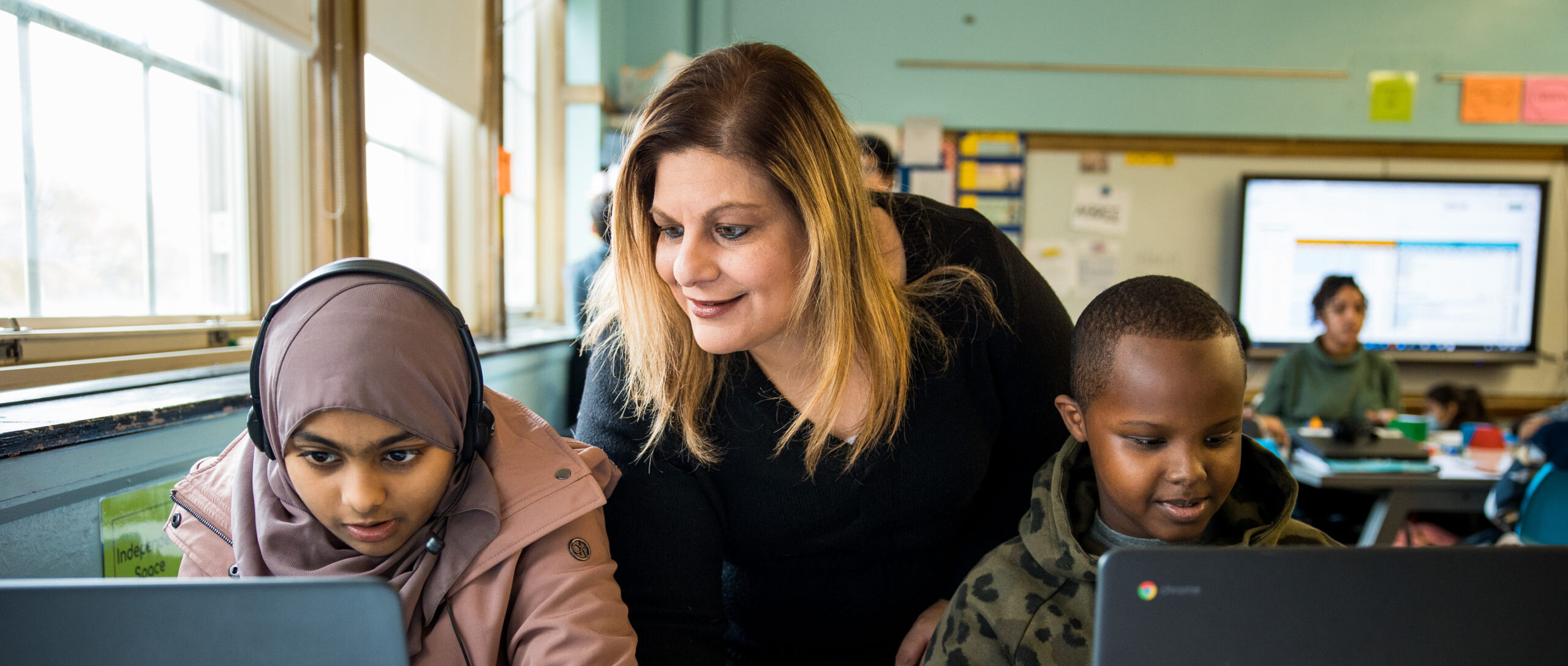
As budgets are implemented, CPS will need to further safeguard local decision-making by:
- Ensuring schools are able to staff the positions they are allocated.
- Ensuring that schools with unique structures are not penalized under the new system — that principals and LSCs continue to have the flexibility to work within the new system (transferring positions and converting positions to other resources).
- Continuing to monitor the new system with an eye for equity.